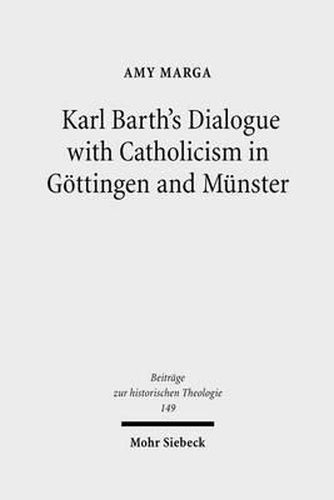Readings Newsletter
Become a Readings Member to make your shopping experience even easier.
Sign in or sign up for free!
You’re not far away from qualifying for FREE standard shipping within Australia
You’ve qualified for FREE standard shipping within Australia
The cart is loading…






Amy Marga studies Karl Barth’s early encounter with Roman Catholic theology during the 1920s, especially seen in his seminal set of dogmatic lectures given in Goettingen, and his second set of dogmatic lectures, given in Munster and which remain unpublished. Her analysis demonstrates his search for a concept of God’s objectivity - Gegenstandlichkeit - which would not be dependent upon philosophically-laden concepts such as the analogia entis, but which would rather be anchored in God’s being alone. The author shows that Roman Catholicism, especially the thought of Erich Przywara, became the key interlocutor that helped Barth bring this clarity to his doctrine of revelation and the triune God.
$9.00 standard shipping within Australia
FREE standard shipping within Australia for orders over $100.00
Express & International shipping calculated at checkout
Amy Marga studies Karl Barth’s early encounter with Roman Catholic theology during the 1920s, especially seen in his seminal set of dogmatic lectures given in Goettingen, and his second set of dogmatic lectures, given in Munster and which remain unpublished. Her analysis demonstrates his search for a concept of God’s objectivity - Gegenstandlichkeit - which would not be dependent upon philosophically-laden concepts such as the analogia entis, but which would rather be anchored in God’s being alone. The author shows that Roman Catholicism, especially the thought of Erich Przywara, became the key interlocutor that helped Barth bring this clarity to his doctrine of revelation and the triune God.